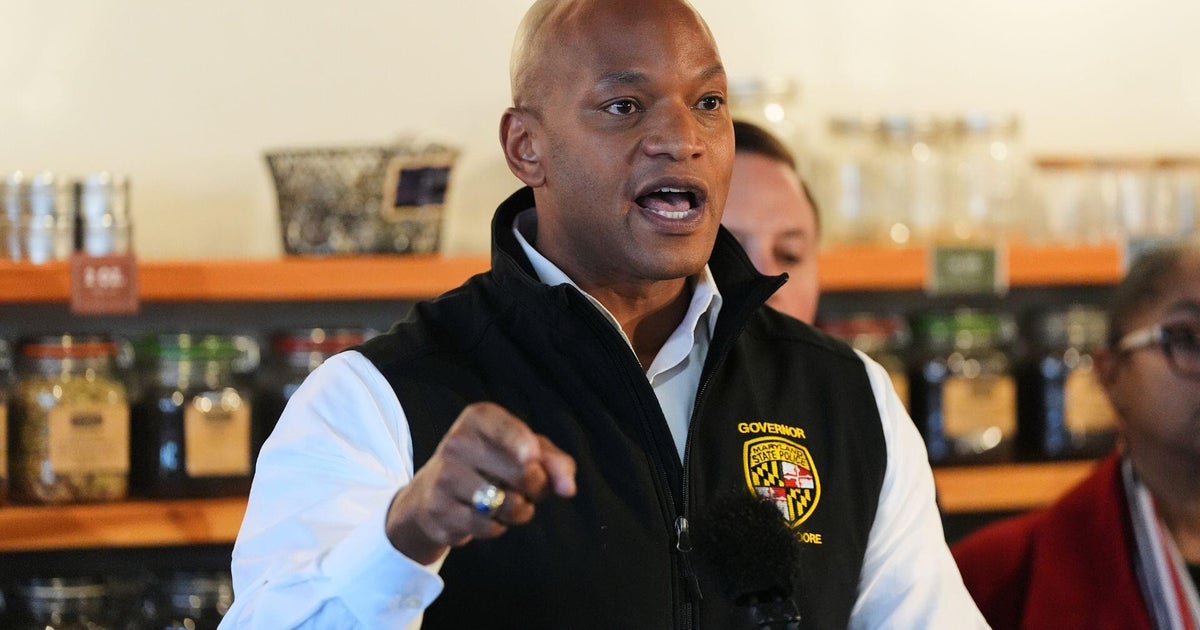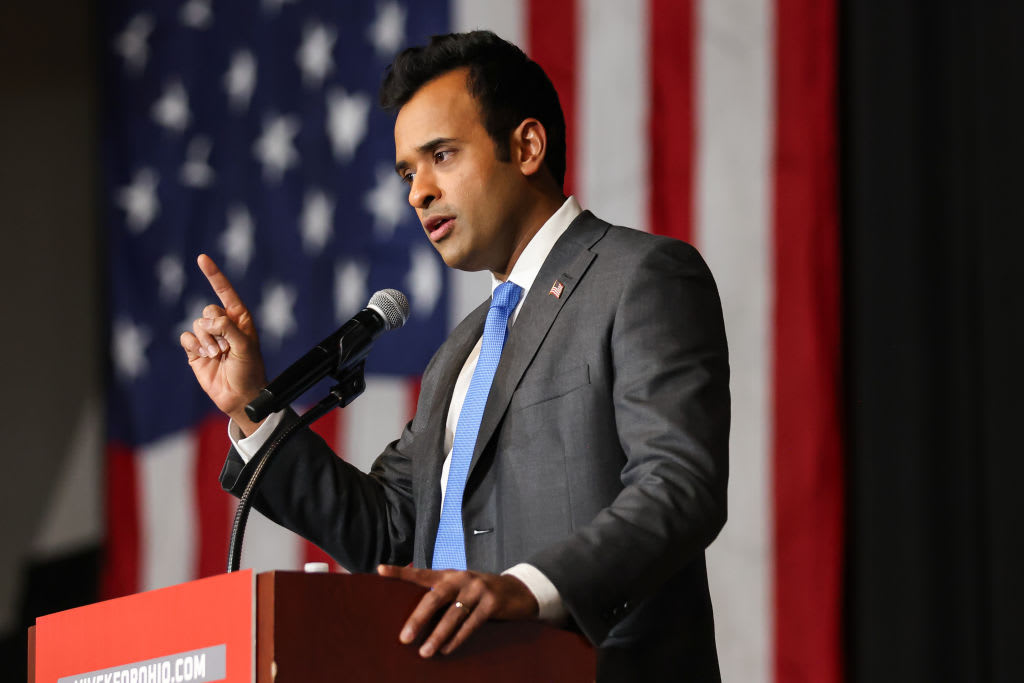Transcript: John Bel Edwards on "Face the Nation," March 29, 2020
The following is a transcript of an interview with Louisiana Governor John Bel Edwards that aired Sunday, March 29, 2020, on "Face the Nation."
MARGARET BRENNAN: Welcome back to Face the Nation. We want to take a closer look at one state where the crisis is getting worse. Louisiana Governor John Bel Edwards joins us from Baton Rouge. Governor, before we start, I do want to extend our condolences on the loss of your staffer, April Dunn, who we understand died yesterday of coronavirus. Thank you for joining us.
GOVERNOR JOHN BEL EDWARDS: She did. And thank you very much. And she was a very sweet lady and an important part of our team. So thank you.
MARGARET BRENNAN: I want to talk about the fate of your state. You have said that Louisiana could run out of ventilators as soon as April. That's this week. Has the Trump administration given you any assurances that your state will get what it needs?
GOV. EDWARDS: Well, not yet. And we continue to press the case. And- and look, we know that ventilators in short- are in short supply for everyone. You know, all- all states are having this issue to one degree or another. And obviously New Jersey, New York and- and other states have been clamoring for ventilators as well. But over the past few weeks, we've put in orders with the national stockpile, for example, through FEMA. But we've also pursued manufacturers and vendors trying to place orders for about 12,000 ventilators. I think thus far we've received 192. That is inadequate to the task because we stay on this present growth curve that we're on with respect to coronavirus cases, we believe that by about April the fourth or so in the New Orleans area, we will exceed our capacity for ventilators. And- and obviously, that's not where we want to be. So we're doing everything that we can to try to find ventilators, get them to Louisiana, especially down into that New Orleans area. But it is a big challenge right now.
MARGARET BRENNAN: Has the federal government told you you're on your own to secure those ventilators?
GOV. EDWARDS: Well, no, I'm not going to say they told us that they're on- that we're on our own. We- we haven't yet been approved for ventilators out of the national stockpile. I continue to press that case, and- and I hope that we will be cut in for a slice of what they have left there and that we get them in the next few days. In the meantime, we're identifying every breathing machine that we can convert, modify into a ventilator. We're looking at- at trying to source ventilators that would typically be used in the EMT area as opposed to hospital rooms. And then we're looking to see what ventilators we can use to potentially service more than one patient at a time, depending on the acuity levels of the patient and so forth. So we're doing everything that we can. This is the- the biggest issue in the near term, however, is ventilator capacity. And it's- it's the one thing that really keeps me up at night right now.
MARGARET BRENNAN: You also told CBS that you need N95 masks. Those are the masks for frontline workers. You told one of my colleagues that your state is paying four and five times the normal cost when you are able to get them.
GOV. EDWARDS: Yeah.
MARGARET BRENNAN: Have you told the White House that this system of states outbidding each other or trying to bid against the federal government, that it's just not working for you?
GOV. EDWARDS: Well, yeah, we've had plenty of conversations with the White House and the vice president leading the Coronavirus Task Force. We've had many phone calls and telephone conferences. And our situation here in Louisiana is not like other states. I'm sorry, not unlike other states. We did receive into our warehouse about 110,000 masks yesterday. They've all been distributed. So the PPE situation does appear to be getting a little bit better. We hope that that obviously continues to improve over time. But it's a challenge and everybody is paying more for these items than we would have paid several weeks ago. It's a function of supply and demand. I do think there's some price gouging going on as well. And I'm hoping that that gets investigated. And as we identify practices that we believe to be illegal price gouging, we are turning those over to the US attorney for the middle district here in Louisiana.
MARGARET BRENNAN: That's fighting on a lot of fronts at once, sir. Is there money that you know will be coming to you through this congressional relief package?
GOV. EDWARDS: Yes, the two trillion dollar package that Congress passed that the president signed into law, we know is going to help with hospitals with unreimbursed expenses, the expansion of telehealth. We know that families are going to benefit, small businesses, employees--
MARGARET BRENNAN: Is it enough?
GOV. EDWARDS: --nutrition for our schools and our food banks. Well, you know, it's a very generous package. It's the largest one in the history of our country--
MARGARET BRENNAN: Right, but is it enough for you?
GOV. EDWARDS: --there's about one point eight billion dollars worth- well, there's one point eight billion dollars for the state that's going to help. And so there's going to be additional legislation coming forward, I believe as well. But we know that this is a good start. And I appreciate everything that they have done in Congress in order to help us. And we're going to be working with our congressional delegation if we can identify other needs that we can get--
MARGARET BRENNAN: Yeah.
GOV. EDWARDS: --help on. We're going to make sure that we continue to do that.
MARGARET BRENNAN: The first confirmed case of coronavirus in your state came about 13 days after Mardi Gras.
GOV. EDWARDS: Yes--
MARGARET BRENNAN: You didn't cancel it. Do you regret not doing so? I know you've said the CDC didn't issue guidelines saying to do so. Is that what you were waiting for, for the federal government to tell you as a state what to do?
GOV. EDWARDS: Margaret, look back to where we were at that time. I think there were 15 cases in the country, all of which had been linked to foreign travel, either directly or indirectly. There was not one person at the state or its federal government, not at the CDC or otherwise, who recommended cancelling any event, not just Mardi Gras, but I don't think anywhere across the country. And we'll know what role Mardi Gras played in seeding this virus later. But right now, that's not our focus. We can't do anything about what happened or didn't happen yesterday. We're focused on building our capacity to deliver health care in the short term--
MARGARET BRENNAN: I understand--
GOV. EDWARDS: and slowing the spread.
MARGARET BRENNAN: I understand--
GOV. EDWARDS: of this virus.
MARGARET BRENNAN: I ask you the question on guidance, though, because we know the White House is preparing to issue new guidance in the coming week. So as a governor, you know, you wish you knew a few things back then. What do you need to know now?
GOV. EDWARDS: Well, first of all, every time the CDC comes out with updated guidance, we look at it very, very closely and we make sure that we're talking to our federal partners whether it's the surgeon general, whether it's Dr. Fauci, Dr. Brett Giroir, who's over testing. I've had conversations with all of those individuals to make sure that we're doing everything that we can in Louisiana. You know, we've been about a week into our stay at home order. We expect that that mitigation works and that we'll see that come into play in the next couple of days as we continue to report the positive cases. We need to flatten the curve because- because we know that we're on a trajectory right now where we're not going to be able deliver the health care that people need when they need it, not just with respect to ventilators, but a few days after that,
MARGARET BRENNAN: Yeah.
GOV. EDWARDS: --by the 10th or so of April, bed space. And so we need to flatten the curve, surge our medical capacity.
MARGARET BRENNAN: Okay.
GOV. EDWARDS: Again, these are the same situations, challenges that are- that are facing a number of states right now.
MARGARET BRENNAN: We understand and we wish you good luck, sir. (00:07:23) We'll be back in a moment.
GOV. EDWARDS: Thank you.



